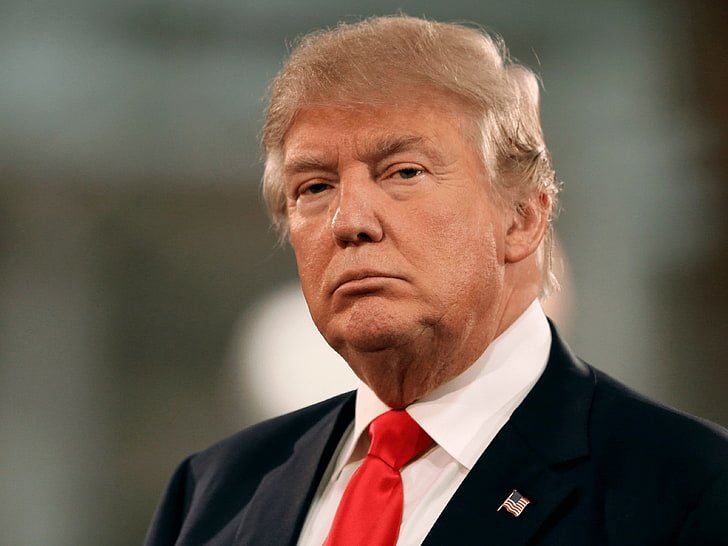Ceasefire Between Iran And Israel
In June 2025, a sudden yet hopeful diplomatic breakthrough emerged: an “unlimited” ceasefire between Iran and Israel was declared after 12 days of intense military strikes. U.S. President Donald Trump took credit for brokering the agreement — but beneath public declarations lay a critical yet rarely spotlighted actor: a Muslim nation acting as the trusted mediator. This country, strategically neutral and diplomatically adept, bridged the divide and helped avert a broader Middle Eastern war.
This article explores the lead-up to the ceasefire; identifies the behind-the-scenes role of this Muslim mediator; examines how it facilitated negotiations between Tehran and Washington; dissects Trump’s diplomatic milestones; and highlights the ceasefire’s regional and global impacts. In doing so, it emphasizes how neutral intermediaries can steer even deep geopolitical disputes toward peace.
What Triggered the Crisis?
In early June, the conflict between Israel and Iran intensified rapidly. Israel launched airstrikes on Tehran and key military sites—including the Natanz uranium enrichment facility—which were widely reported. Iran retaliated with missile and drone attacks, including a strike on a U.S. base in Qatar.
By mid‑June, hundreds of casualties were reported on both sides. Iran fired hypersonic missiles at Israel; the U.S. urged citizens to evacuate; Trump responded by demanding Iran’s “unconditional surrender” and warning that America knew the whereabouts of Supreme Leader Khamenei. Escalation seemed imminent, with both military strikes and political rhetoric pushing the region to the brink of all-out war.
Impact of This War
-
According to sources, over 250 people were killed and over 1,000 injured in the 12-day Israel-Iran conflict prior to the ceasefire.
-
The brief war caused a 15–20% spike in global oil prices, impacting the global energy market.
-
The final ceasefire agreement included a review mechanism every 60 days, ensuring both parties adhere to the agreement.
Diplomatic Pressure: Gulf States on the Front Lines
Amid the escalating violence, Gulf nations – especially Qatar, Saudi Arabia, and Oman – emerged as backchannels. According to Reuters, Iran had enlisted Gulf states to press Trump to urge Israel into a ceasefire, offering concessions on nuclear talks. Oman went further, drafting a proposal including:
-
A temporary halt to uranium enrichment
-
Full IAEA inspections
-
Trust‑building steps, with U.S. sanctions relief in return
European leaders at the G7 echoed the call for de-escalation, urging Iran and Israel into direct talks — but remained wary of Western credibility .
The Unsung Mediator: Oman’s Diplomacy
While Qatar and Saudi Arabia were vocal, the most instrumental was Oman, whose unique diplomatic positioning has made it a reliable broker. Unlike many Gulf neighbors, Oman maintains open diplomatic channels with both Washington and Tehran — a policy traceable to its historical neutrality and mediation in other regional conflicts.
Why Oman?
-
Neutral reputation: Oman avoided the sectarian or alignment rivalries shaping Gulf politics, positioning itself as a trusted interlocutor.
-
Established channels with Iran: Oman frequently hosts indirect talks between the U.S. and Iran, making it a go‑to mediator. In April, Oman hosted indirect nuclear negotiations between U.S. envoy Steve Witkoff and Iranian Foreign Minister Abbas Araghchi.
-
Trusted by Washington: The U.S. views Oman as a reliable partner — highlighted when Trump referenced the Muscat talks as “constructive” .
Oman’s Ceasefire Role
According to sources cited by Reuters and Sky News, Trump’s ceasefire plan was mediated via Qatar and Oman. Israel agreed, contingent on Iran halting further attacks. Oman relayed Iran’s acceptance to the U.S. while guaranteeing compliance — effectively serving as the declarative middleman. The sequence culminated when Trump announced the “12‑day war” had ended, giving Oman credibility for enabling the deal.
-
Oman has long acted as a mediator in Middle Eastern conflicts due to its neutral stance.
-
In 2013 and 2015, Oman hosted secret meetings between the U.S. and Iran that eventually led to the Joint Comprehensive Plan of Action (JCPOA).
-
Its unique position allows it to balance relationships between the U.S., Israel, and Iran.
Role Of Other Nations
-
Saudi Arabia and the UAE expressed cautious optimism about the ceasefire.
-
The European Union announced support for Oman’s role and called for renewed negotiations under the JCPOA framework.
-
China and Russia offered to host further rounds of peace talks, supporting Oman’s approach.
Trump’s Diplomatic Moves
In parallel, Trump took several decisive actions:
-
Departing the G7 early: On June 16, Trump left Banff to return to Washington, claiming the need to directly manage the crisis.
-
Public pressure: He publicly called for Iran to “give up entirely” on its nuclear program, claimed control over Iranian airspace, and prepared options ranging from diplomacy to major strikes.
-
Back‑channel negotiations: Trump mobilized envoys — VP J.D. Vance and Steve Witkoff — alongside Secretary of State Marco Rubio, to engage with Gulf intermediaries and Iran.
-
Ceasefire announcement: On June 24, Trump announced a 24‑hour staged ceasefire: Iran would halt fire first, then Israel — bringing an “unlimited” pause to the 12‑day war.
In sum, Trump oversaw a blend of strong public diplomacy and discreet back‑channel talks — using Oman as the key communicator.
Ceasefire Mechanics and Terms
Although details remain confidential, available sources paint a clear picture:
-
Stage 1: Iran ceases fire (announced by Trump).
-
Stage 2: Israel halts after 12 hours, enabling active missions to complete.
-
Stage 3: A full ceasefire kicks in after 24 hours; both nations officially recognize “end of war”.
Oman’s draft proposal — reportedly integrated into the arrangement — included uranium enrichment pauses and new IAEA inspections.
If upheld, the deal would:
-
Freeze hostilities indefinitely
-
Open diplomatic and nuclear negotiations
-
Serve as a model for Gulf‑mediated peace processes
Regional and Global Impacts
The ceasefire has ripple effects:
1. Reduced regional escalation
The agreement forestalls wider conflict — with many fearing spillover into Iraq, Syria, Lebanon, or against U.S. forces. Qatar reopened airspace shortly after the deal.
2. Oil market stability
A halt in hostilities eases volatility in global oil prices and shipping across the Strait of Hormuz — alleviating economic stresses tied to supply fears.
3. Nuclear negotiations reopened
Iran’s offer to freeze enrichment tied to ceasefire represents a possible restart of nuclear diplomacy — reversing Trump’s earlier maximum pressure policies of February 2025 .
4. Gulf states’ enhanced status
Oman — and by extension Qatar and Saudi Arabia — elevates their Gulf Cooperation Council (GCC) profile, portraying themselves as indispensable peace brokers.
5. U.S. domestic politics
Trump’s positioning — from pressuring Iran to claiming a decisive diplomatic victory — bolsters his geopolitical reputation ahead of future electoral cycles.
The Power of Neutral Mediation
Oman’s role is a textbook case of soft power diplomacy:
-
Credibility over coercion: As a neutral party, Oman commanded trust from both Iran and the U.S.
-
Continuous communication: It channeled messages, paved groundwork for indirect talks, and enabled Trump’s team to connect with Iran without provoking domestic blowback.
-
Institutional memory: Oman has mediated previous U.S.–Iran talks (including April 2025’s nuclear negotiations), giving it institutional legitimacy .
Such diplomacy demonstrates how non‑aligned nations can defuse existential threats and steer adversaries away from direct confrontation.
What Comes Next?
Moving forward, several key fronts require attention:
-
Ceasefire adherence: Will both Iran and Israel abide by the staged ceasefire, or will violations undermine the deal?
-
Nuclear diplomacy: With Iran offering enrichment flexibility, a phased return to talks (in Oman or Europe) may follow, though Iran insists on prior halt to Israeli strikes .
-
Monitoring and verification: Oman and likely the IAEA (with full inspections) could act as guarantors.
-
Regional security dynamics: GCC states may evolve into formal security guarantors, reframing Gulf relations with Iran and Israel.
-
U.S. strategic posture: Trump’s hybrid of pressure and diplomacy marks a departure from earlier maximum-pressure-only approaches— possibly shaping future U.S. policy.
Why This Ceasefire Matters Globally
-
Reduced tensions can lead to improved security across the Middle East and North Africa.
-
The stability benefits global oil and gas trade, impacting global economic growth.
-
Peace talks could revive hopes for long‑term Middle Eastern stability and reduce the threat of a wider conflict.
Future Outlook
-
The agreement is seen as a blueprint for conflict resolution across the Middle East.
-
Will potentially affect future negotiations related to Yemen and Syria, where Oman has also acted as mediator.
-
A successful ceasefire and follow‑up negotiations could redefine the role of small neutral states in global diplomacy.
Conclusion
The June 2025 ceasefire between Iran and Israel, facilitated behind the scenes by Oman, demonstrates the remarkable potential of discreet, neutral diplomacy. By relaying messages, staging indirect talks, and drafting proposals, this Muslim-majority nation enabled Trump to claim credit — but more importantly, it saved the region from spiraling out of control.
In a world often veering toward confrontation, Oman’s quiet interventions remind us that even amid stark mistrust, trust can be rebuilt — step by step, message by message. If upheld, this ceasefire may usher in a renewed phase of negotiations on nuclear limits, sanctions relief, and broader peace frameworks, reaffirming the indispensable role of impartial mediators in global conflict resolution.




